Electric Mobility Needs More Than E-Buses: Kolkata Conclave
- By Gaurav Nandi
- May 23, 2025
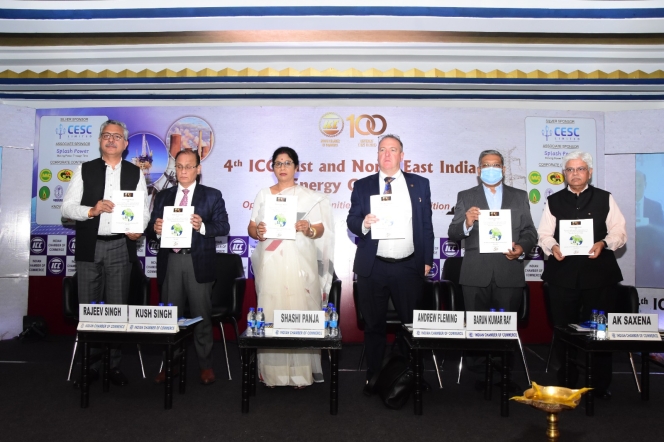
India’s electric mobility transition is entering a decisive phase with public transportation emerging as the flagship for decarbonisation. At the 4th East and Northeast Energy Conclave held in Kolkata, A.K. Saxena, Senior Director at The Energy and Resources Institute (TERI), laid out an ambitious yet structured roadmap for how electric vehicles—particularly electric buses—can catalyse a cleaner, more inclusive transport future for India’s eastern and northeastern regions.
The event, organised by the Indian Chamber of Commerce, brought together policymakers, energy sector leaders and infrastructure experts to deliberate on regional energy transition strategies. Saxena’s keynote address stood out for its clarity on India’s electric mobility outlook, emphasising that public transport electrification must lead the charge.
Data-driven rollout in Kolkata
TERI’s work with the West Bengal Transport Corporation served as a case in point. The state aims to deploy 1,200 electric buses in Kolkata and Saxena revealed how technology and granular data are at the heart of this transformation. “We carried out a comprehensive traffic survey using GIS mapping and drone analytics to understand routes, congestion points and energy demand,” Saxena said. The insights helped identify optimal locations for EV charging infrastructure across the city.
The approach reflects a broader shift in India’s energy planning—from top-down mandates to data-driven micro-planning. Saxena emphasised that charging infrastructure is not just about installation but about siting, access, demand forecasting and grid-readiness. “The efficiency of public EV fleets hinges on planning that is grounded in real-world usage patterns,” he noted.
National push
In tandem with regional projects, the event also marked the launch of a new EV web portal and a short film on decarbonising public transport, both developed by TERI. These tools aim to enhance public awareness, empower local governments and standardise best practices.
Saxena pointed to TERI’s development of the e-Amrit portal for NITI Aayog—a national dashboard for EV adoption—as another example of institutional capacity-building in the e-mobility space. The platform offers guidance on EV incentives, vehicle types, charging options and ecosystem partners. “Digital platforms like e-Amrit can help streamline decision-making for city planners, fleet operators and even individual consumers,” Saxena added.
Broader energy transition
But Saxena was clear that electric mobility cannot be addressed in isolation, it must be integrated into a larger energy transition framework. He pointed out that e-mobility needs to be powered by clean, renewable energy and not simply displace tailpipe emissions with upstream fossil fuel usage.
“India must ensure that new incremental energy demand from EVs is met through renewables plus storage, not coal,” he said. TERI’s own roadmap recommends phasing out inefficient coal plants and meeting new demand growth through clean sources, particularly solar, wind and hydro.
Battery storage and pumped hydro have been prioritised as key enablers, especially for regions with variable renewables and peak demand mismatches. Saxena cited examples such as the Purulia and Turga pumped storage plants in West Bengal and Aparindavati in Odisha as vital to integrating e-mobility sustainably.
Coordinated ecosystem
One of Saxena’s boldest proposals was the formation of an East and Northeast Energy Transition Council. This cross-state platform would allow for better coordination between utilities, transport agencies and regulators. He argued that states like Odisha, Bihar, Assam and West Bengal can benefit from collaborative planning, especially on issues like charging infrastructure interoperability, storage strategy and renewable energy synergies.
He also floated the idea of setting up solar parks and EV charging corridors specifically tailored for intercity public transport routes. “Kolkata to Bhubaneswar or Guwahati to Shillong could become future-ready with fast-charging lanes,” Saxena said.
On the urban distribution front, Saxena advocated for the creation of distribution system operators (DSOs), specialised agencies tasked with managing decentralised energy flows including bi-directional EV charging, rooftop solar integration and grid balancing. “With vehicle-to-grid technologies on the horizon, the distribution system can no longer be passive,” he asserted.
Inclusive transition
Saxena closed his remarks with a reminder that India’s energy transition must be socially just and inclusive. Electrification of transport must not leave behind regions dependent on fossil fuels or traditional automotive sectors.
“Coal mining communities and internal combustion engine industries must be given retraining opportunities, livelihood alternatives and transition finance,” he said. Public transport electrification, he argued, presents an opportunity not only to cut emissions but to create green jobs, especially in battery servicing, EV manufacturing and smart infrastructure installation.
He acknowledged that the economics of EVs, especially in public fleets, may not yet be universally favourable. “But if we keep waiting for perfect conditions, the transition will remain academic,” Saxena said. “At some point, bold decisions have to be made.”
As India eyes near-universal e-mobility by 2040, Saxena’s remarks offered a realistic yet optimistic roadmap. The push to decarbonise public transport backed by smart tools, local data and clean energy is not just about vehicles. It is about shaping cities that are cleaner, healthier and more equitable for the future.
And in the alleys and arteries of Kolkata, India’s next mobility revolution may already be taking shape.
Suzuki Opens Second Biogas Plant In Gujarat
- By MT Bureau
- January 20, 2026
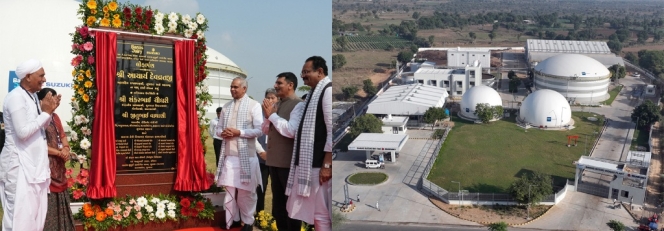
Suzuki Motor Corporation and its subsidiary, Suzuki R&D Centre India (SRDI), have inaugurated the Banas Suzuki Biogas Plant in Bhukhala, Gujarat. The facility, which opened on 18 January 2026, is the second such plant following the Agthala site that commenced operations in December 2025.
The plant is designed to process up to 100 tonnes of cow dung per day to produce approximately 1.5 tonnes of biogas. This output is equivalent to the daily fuel requirements of 850 compressed natural gas (CNG) vehicles. In addition to fuel production, the facility will sell organic fertiliser generated as a byproduct of the process.
The project is part of an agreement signed in September 2023 between SRDI, the National Dairy Development Board (NDDB) and Banas Dairy. The partners have agreed to construct a total of five biogas plants in the region. The Bhukhala site covers an area of 27,000 square metres and forms a component of Suzuki’s strategy to support carbon neutrality in India.
The use of biogas serves as a carbon-neutral alternative for CNG vehicles, which currently represent 20 percent of the Indian passenger car market. Beyond emission reductions, the initiative is intended to improve energy self-sufficiency and increase rural income through the purchase of cattle waste from local farmers.
The opening ceremony was attended by Acharya Devvrat, Governor of Gujarat and Shankar Chaudhary, Chairman of Banas Dairy and Speaker of the Gujarat Legislative Assembly. Representing Suzuki was Kenichiro Toyofuku, Managing Officer and Executive General Manager of Biogas Operations.
The company stated that it will continue to develop its biogas business to contribute to national growth and environmental targets. The operation is expected to create jobs within the district while providing fuel for high-demand vehicle segments.
Bajaj Auto Rolls Out Early Incentive Offer For Chetak C25 E-Scooter
- By MT Bureau
- January 19, 2026
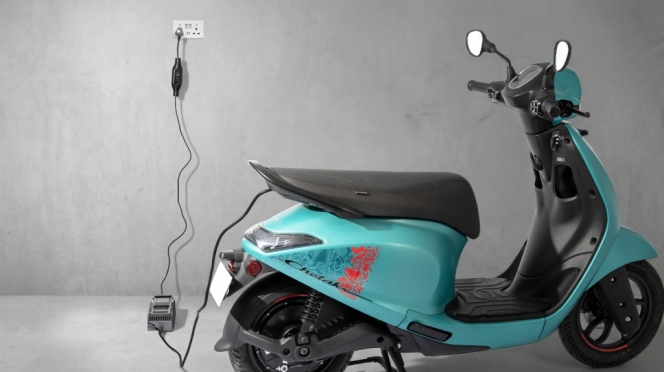
Pune-headquartered two-wheeler and three-wheeler major Bajaj Auto has started sales of its recently introduced Chetak C25 e-scooter across its showrooms in India. Following the model's unveiling earlier this week, the company has positioned the vehicle to target urban commuters. The scooter is priced at INR 91,399 (ex-showroom Delhi), with an introductory benefit of INR 4,299 available for the first 10,000 customers, bringing the effective price to INR 87,100.
The Chetak C25 features a 2.5 kWh battery providing a certified claimed range of 113 km. It is constructed with a metal body and a mono-body design intended for durability in city environments. Technical specifications include a 25-litre storage compartment, disc brakes, hill hold assist, and guide-me-home lighting. The vehicle’s proportions are designed for agility in dense traffic.
The introduction of the C25 completes the Chetak portfolio, which now includes the 30 and 35 Series. Bajaj is marketing the model to first-time electric vehicle buyers and households requiring a secondary scooter for short trips. Deliveries have commenced alongside the showroom roll-out in major cities.
The C25 is supported by the existing Chetak service network. The company noted that the launch and early-bird offer are intended to address customer interest in accessible electric mobility solutions that focus on reliability and ease of use.
The e-scooter maintains the brand's focus on material quality through its use of metal surfaces rather than plastic panels. It is engineered to align with daily commute patterns and offers various colour options. The mechanical framework is built to provide stability and a refined presence on the road while maintaining a compact footprint.
- Indofast Energy
- Nexus Select Malls
- Quick Interchange Stations
- Anant Badjatya
- Nilesh Singh
- Battery Swapping
Indofast Energy Partners Nexus Select Malls To Expand Battery Swapping Stations
- By MT Bureau
- January 19, 2026

Bengaluru-based clean tech company Indofast Energy has partnered Nexus Select Malls to introduce battery swapping stations within shopping mall premises. The initiative has commenced with the inauguration of Quick Interchange Stations (QIS) at Nexus Shantiniketan and Nexus Whitefield in Bengaluru.
This marks the first time such infrastructure has been integrated into the portfolio of India’s first Retail REIT. The partnership is designed to provide energy solutions for commuters, delivery partners and fleet operators by utilising high-footfall retail destinations.
Following the Bengaluru launch, the companies plan to expand the network to other cities, including Delhi NCR, Chandigarh, Hyderabad and Pune. The technology allows users of electric two-wheelers and three-wheelers to replace depleted batteries in minutes, addressing requirements for the last-mile delivery sector.
The swapping stations utilise an automated platform that supports multiple vehicle types. By placing these stations in malls, the companies intend to make electric vehicle (EV) charging as accessible as traditional retail services. The project aligns with broader efforts to embed sustainable mobility into urban infrastructure and reduce the time vehicles spend at stationary charging points.
Anant Badjatya, CEO, Indofast Energy, said, “Our collaboration with Nexus Select Malls represents a paradigm shift in how urban infrastructure can support the rapid adoption of electric vehicles. By integrating our state-of-the-art battery swapping technology directly into high-footfall retail destinations, we are not just providing convenience; we are creating an ecosystem where electric mobility becomes an effortless and integral part of daily life for millions of shoppers and commuters, and especially the thriving last-mile delivery ecosystem. We are incredibly proud to be Nexus Select Malls’ first battery swapping partner and look forward to a successful, rapid expansion across their extensive network. This partnership underscores our commitment to making battery swapping the default choice for urban transportation and accelerating India’s transition to sustainable mobility.”
Nilesh Singh, Senior V-P, ESG & Business Excellence, Nexus Select Malls, added, “As India’s first Retail REIT, Nexus Select Malls is committed to reimagining malls as future-ready urban ecosystems. Introducing battery swapping stations for the first time across our portfolio is a meaningful step in embedding sustainability into everyday consumer spaces. This initiative supports cleaner last-mile mobility while making greener choices visible, accessible and practical for millions of visitors who engage with our malls every day.”
Kinetic Watts & Volts Partners Hero FinCorp, Bajaj Finserv & CleverPe For Retail Finance
- By MT Bureau
- January 19, 2026
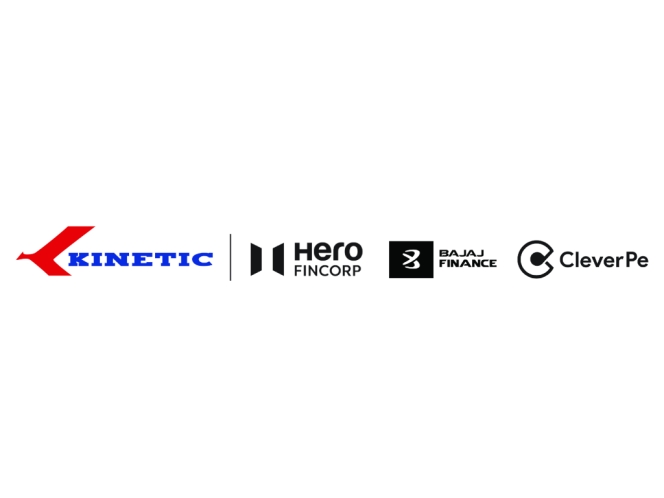
Kinetic Watts & Volts, the electric mobility division of the Kinetic Group, has formed a retail finance ecosystem through partnerships with Hero FinCorp, Bajaj Finserv and CleverPe.
The collaborations provide financing solutions for the Kinetic DX and DX+ electric scooter range, utilising traditional lending and digital payment technologies across the company’s dealership network in India.
The partnership combines the reach of established financial institutions with a fintech platform to offer EMI-based lending and digital credit options. This framework is designed to reduce upfront costs and simplify documentation for consumers. The move supports Kinetic’s strategy of market-by-market expansion as the company scales production and registration volumes.
The Kinetic DX range features the Range-X LFP battery architecture, which is engineered for safety and reliability. The scooters are designed to reference the brand's previous petrol models while functioning as modern electric vehicles. By integrating finance options directly at the point of sale, the company aims to address the requirements of urban consumers and first-time buyers.
Kinetic Watts & Volts is currently building its dealership footprint and after-sales infrastructure to support its long-term vision in the electric vehicle sector.
Ajinkya Firodia, Vice-Chairman & Managing Director, Kinetic Watts & Volts, said, “Access to convenient and trusted financing is fundamental to accelerating electric mobility adoption in India. By partnering with Hero FinCorp, Bajaj Finserv and CleverPe, we have built a comprehensive retail finance ecosystem that offers customers flexibility, choice and confidence. These collaborations support our strategy of opening markets one by one, while reinforcing the growing belief of leading financial institutions in Kinetic’s EV products and long-term vision.”



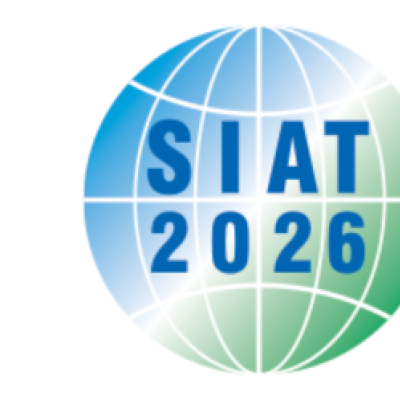



Comments (0)
ADD COMMENT